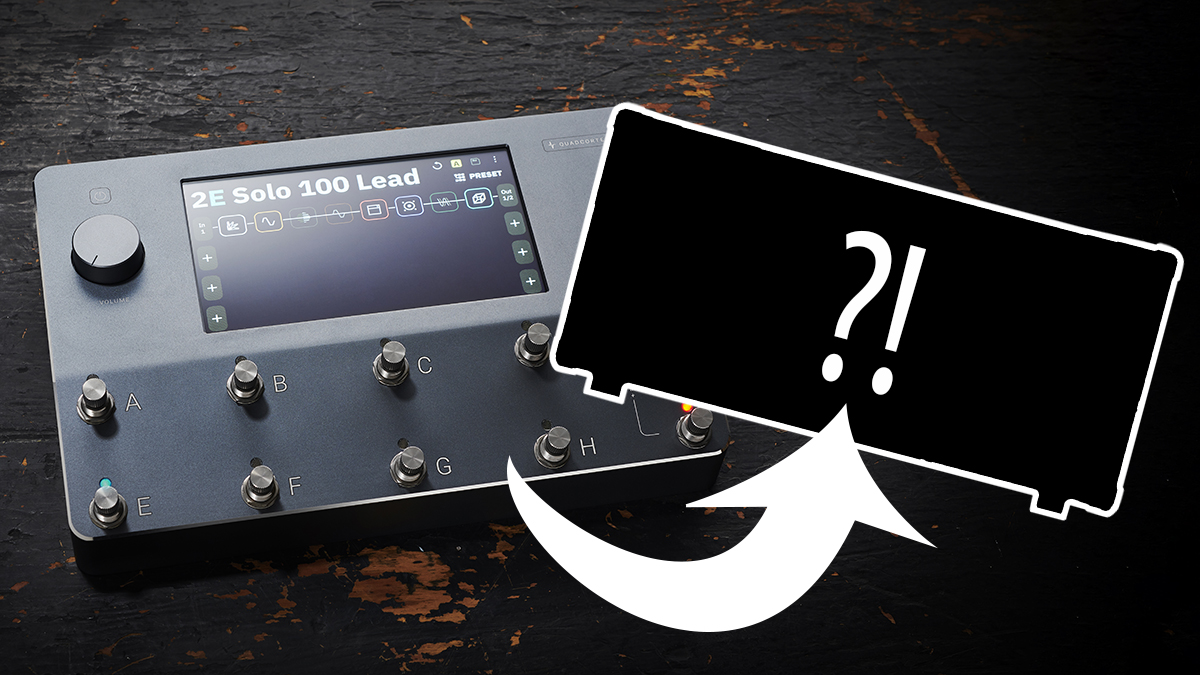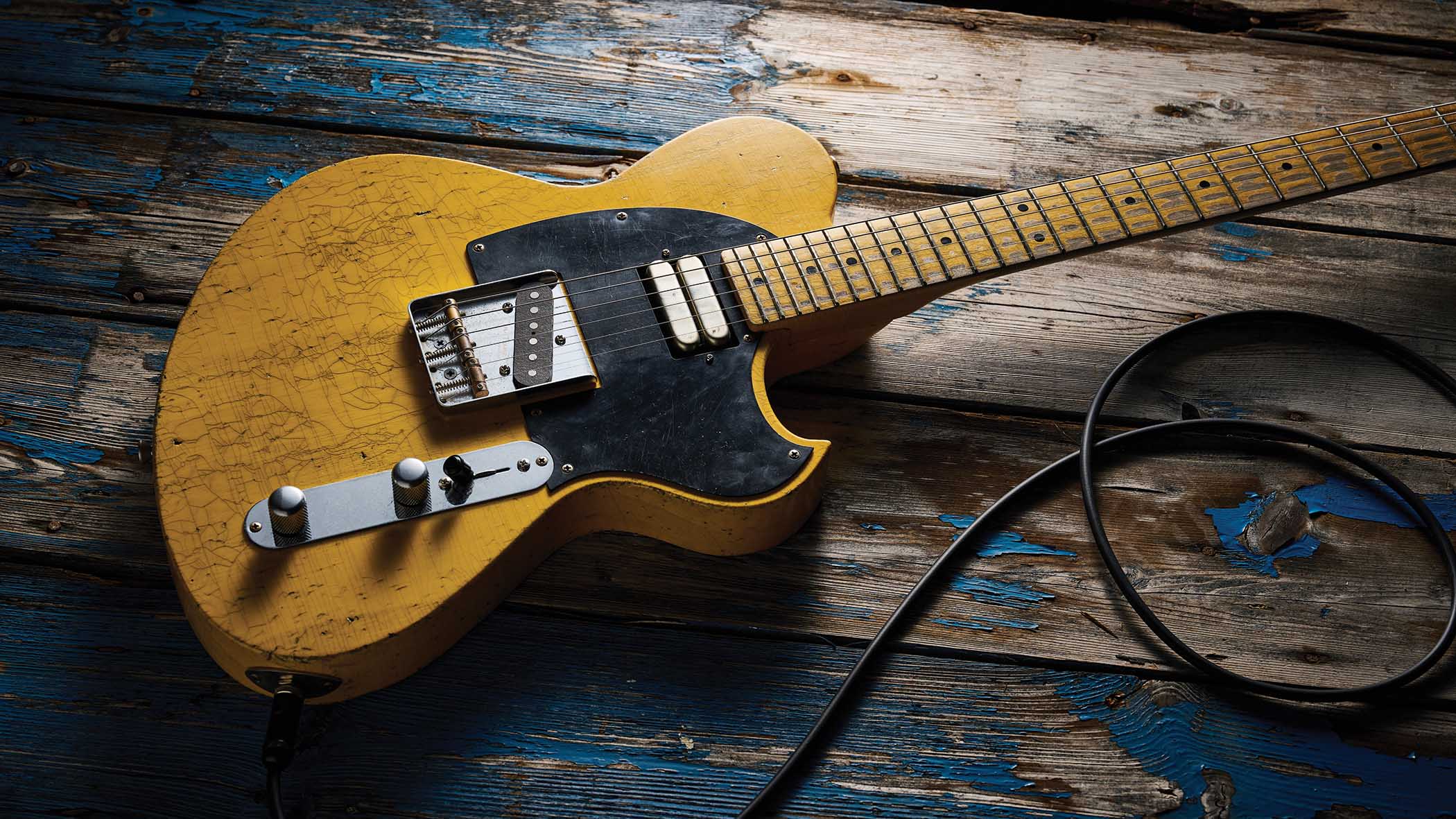“If you talk about rare unicorns, that's the amp. To have something that John Mayer himself couldn't distinguish from the real thing, that’s something we would love to do”: The Neural DSP team reveal the vintage amp they dream of one day modeling

All the latest guitar news, interviews, lessons, reviews, deals and more, direct to your inbox!
You are now subscribed
Your newsletter sign-up was successful
Through its innovative modeling technology, Neural DSP has managed to assemble a huge archive of amp sims, which are widely considered to be some of the most authentic-sounding digital amp repros currently available.
Recently, the firm unveiled one of the driving forces behind its market-conquering modeling mission: TINA – a physical, state-of-the-art robot that can apparently model any guitar amp with unprecedented accuracy.
With TINA’s help, Neural DSP has been able to rapidly curate a huge catalog of amp sims, which range from standard combos all the way to sought-after vintage amps that the average player could only dream of getting their hands on.
There is, however, one amp missing from Neural DSP’s own in-house amp archive, and one particular unit that the firm would love to set TINA loose on.
In an upcoming interview with Guitar World, Neural DSP CEO Doug Castro and CPO Francisco Cresp discussed the ins-and-outs of the recently unveiled modeling robot, and revealed the one amp they’d like to test it on next.
“I would love – and I think a lot of people would love – to do a Dumble at some point,” says Castro. “Because, I mean, if you talk about rare unicorns, that's the amplifier.
“And to have something that John Mayer himself couldn't distinguish from the real thing, then I think it's something that a lot of our users would love. That’s something we would love to do eventually.”
All the latest guitar news, interviews, lessons, reviews, deals and more, direct to your inbox!
As for how TINA would cope with modeling an incredibly elusive, eye-wateringly expensive Dumble, Castro concedes the Neural DSP team won’t know until they’re physically in the room with one.
“Until we’ve tried it, it's hard to say,” he explains, “Sometimes these models, you put it in the robot, and 24 hours later you have a model that everybody's like, ‘Yeah, that's it.’
“More often than not, you do have some iteration, where some designers give feedback to the machine learning guys, and they need to tweak things and try again. It really depends a lot on the amplifier.
“And our own methods have evolved a lot. We've been using this tool in some shape or form for, I don't know, four or five years now, but what we do now is very, very, very different from what we did four years ago. So it's continuously improving and evolving.”
Our story was based on trying to rescue vintage gear that is impossible to get. The opportunity for people to try them is almost null
Francisco Cresp
There are some user-created Captures of Dumble-style amps available on the Cortex Cloud, but no official Neural DSP-approved model of an actual, real life Dumble. Castro isn't exaggerating when he says that's something all Neural DSP players would one day love to experience.
Ultimately, Neural DSP’s desire to model a Dumble stems from its wider mission to make “unicorn” guitar amps more accessible for the average guitar player via digital means, all for a tiny fraction of the price.
“We worked really hard to get those models as close as possible to reality, because they are rare items that less than 0.1% of the musicians will ever see in their lives and be able to play through,” adds Cresp.
“Our story was based on trying to rescue vintage gear that is impossible to get. The opportunity for people to try them is almost null. So making this available for everyone is the goal.”
Keep your eyes peeled to GuitarWorld.com for the full interview with Neural DSP later this month.

Matt is the GuitarWorld.com News Editor, and has been writing and editing for the site for five years. He has a Masters in the guitar, a degree in history, and has spent the last 19 years playing everything from blues and jazz to indie and pop. During his GW career, he’s interviewed Peter Frampton, Zakk Wylde, Tosin Abasi, Matteo Mancuso and more, and has profiled the CEOs of Guitar Center and Fender.
When he’s not combining his passion for writing and music during his day job, Matt performs with indie rock duo Esme Emerson, and has previously opened for the likes of Ed Sheeran, Keane, Japanese House and Good Neighbours.

